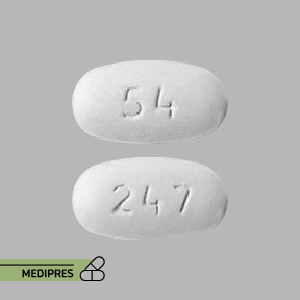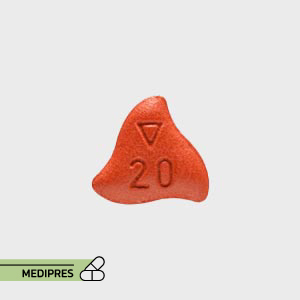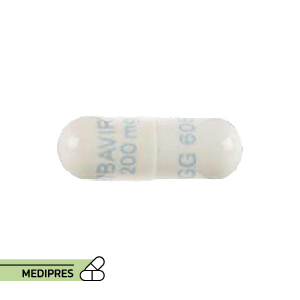
Ribavirin
23 June, 2023
Rituximab
23 June, 2023Ritonavir
Generic name: ritonavir [ rit-OH-na-vir ]
Brand names: Norvir, Norvir Soft Gelatin
Dosage forms: oral powder for reconstitution (100 mg), oral solution (80 mg/mL), oral tablet (100 mg)
Drug classes: Antiviral boosters, Protease inhibitors
Route of administration: Oral.
Dose: HIV infection: Boosting dose for other protease inhibitors: Typically 100 mg to 400 mg daily, divided into one or two doses. Therapeutic dose: 600 mg twice daily (rarely used as a sole protease inhibitor).
Mechanism of action: Ritonavir inhibits the HIV protease enzyme, crucial for the viral replication cycle. By preventing the cleavage of viral polyproteins, ritonavir interferes with the formation of mature infectious viral particles. It is commonly used to “boost” the effects of other protease inhibitors by inhibiting their metabolism, thereby increasing their plasma concentrations.
Drug usage cases: Treatment of HIV-1 infection in combination with other antiretroviral agents. Often used as a pharmacokinetic enhancer (booster) for other protease inhibitors.
Drug contraindications: Known hypersensitivity to ritonavir or any component of the formulation. Severe liver disease. Concurrent use with medications that are highly dependent on CYP3A for clearance and for which elevated plasma concentrations are associated with serious and/or life-threatening reactions.
Side effects: Common: Diarrhea, nausea, vomiting, abdominal pain, altered taste sensation. Serious: Pancreatitis, hepatotoxicity, heart rhythm changes (QT prolongation), severe allergic reactions. Rare: Severe skin reactions, such as Stevens-Johnson syndrome.
Warnings: Monitor for signs of liver dysfunction, especially in patients with pre-existing liver conditions. Caution in patients with a history of cardiac conditions or those taking medications that can prolong the QT interval. Monitor blood glucose levels, as ritonavir may exacerbate or cause new-onset diabetes. Be aware of potential drug interactions due to ritonavir’s effect on CYP3A and CYP2D6 enzymes.
Use during pregnancy or breastfeeding: Use caution during pregnancy; consult a healthcare provider. Ritonavir is excreted in breast milk, and breastfeeding is generally not recommended for HIV-infected mothers due to the risk of postnatal HIV transmission.



